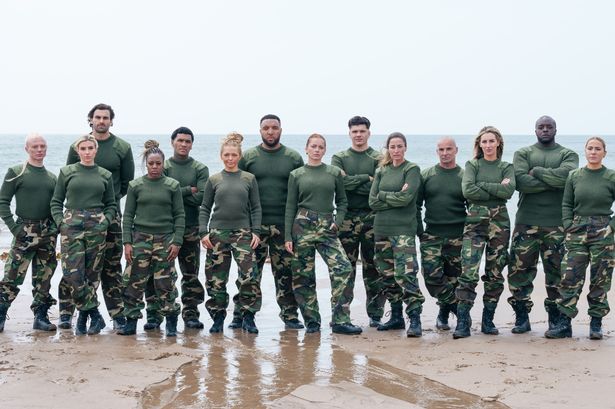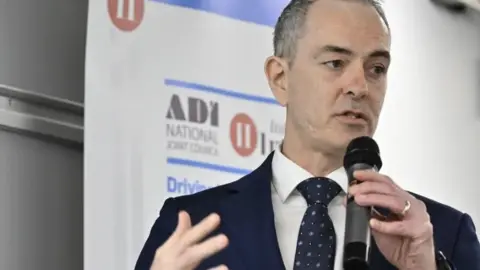Celebrity SAS: Who Dares Wins’ new series had already seen four contestants quit in the first two episodes but two more were shown leaving the process in the latest episode
Another two contestants were seen leaving Celebrity SAS: Who Dares Wins in the latest episode. One of them became the fifth celebrity to voluntary withdraw, whilst their co-star was axed from process by the chief instructor instead.
The Channel 4 show continued with the fourth episode of its new series, which launched earlier this month, this evening. It saw the remaining contestants face yet more challenges together in Wales, which is considered the home of the first phase of SAS Selection.
Four contestants had already left the experience in previous episodes. Another two were shown departing in tonight’s episode, with the first coming during a mission described as “one of the most physically demanding tasks yet”.
READ MORE: Strictly Come Dancing’s Gorka Marquez pulls out of show as he makes career announcementREAD MORE: ITV axes Noel Edmonds’ big TV comeback after just one series despite huge launch
Former footballer Adebayo Akinfenwa, 43, became the fifth recruit to leave. He withdrew during the mission, which saw the contestants tasked with carrying an inflatable boat through “rugged, coastal terrain” in teams.
Adebayo said he was struggling with a pre-existing knee injury towards the end of the mission and decided to voluntarily withdraw. Amid struggling with carrying the boat and concerns that he wasn’t contributing as much as others, he said to his teammates: “I’m messing you up, f***!”
Later, after the mission, the Traitors winner Harry Clark, 23, became the next contestant to leave. He was removed from the process after he had been told off by the unimpressed instructors, who got Harry to admit that he’d lied about “cutting corners”.
After assuring instructors Billy Billingham and Chris Oliver that he doesn’t cut corners, Harry was shown footage of himself doing only 11 burpees after being tasked with doing 20 earlier in the experience.
Harry was later brought in front of the other celebrities, with him admitting to them that he had “cut corners”. Billy said: “I asked you three times about honesty and integrity, and what did you do?” Harry replied: “I lied, staff.” The reality TV star was then asked to hand in his armband, with the instructor saying “now”. Billy then shouted moments later: “Now!” Harry then left, becoming the sixth departure.
The new series of Celebrity SAS, which launched earlier this month, has already seen four contestants voluntarily withdraw. Two quit in the first episode, followed by two more celebrities who walked away during the second episode.
Former S Club member Hannah Spearritt, 44, and dancer Louie Spence, 56, quit too in the first episode. Hannah withdrew amid a mission on the show, with her having said at the time: “Sorry – I’m done. Sorry. I’ve reached a point.”
Louie later quit following a subsequent task. Sharing that he wanted to leave the process, he said: “I wanna do an immediate withdrawal.” He added: “I just don’t have the conviction and I feel as though I’m not dedicated enough.”
Viewers then saw Love Island stars Chloe Burrows, 29, and Tasha Ghouri, 27, quit in the second episode. Chloe withdrew whilst trekking up a hill, on the way to a challenge set over a ravine. After struggling, and her complaints being met with frustration from an instructor, she declared: “I’m done, I’m done.”
Tasha made the same decision shortly afterwards during the same task in the episode. After falling behind some of the other contestants whilst on the trek up the hill, she said: “I’m not mentally here. I’m not mentally here to do this.”
Celebrity SAS: Who Dares Wins continues on Sunday night from 9pm on Channel 4.
Like this story? For more of the latest showbiz news and gossip, follow Mirror Celebs on TikTok, Snapchat, Instagram, Twitter, Facebook, YouTube and Threads.
READ MORE: Olivia Attwood’s Korean beauty moisturiser that ‘transforms’ skin is now on sale






